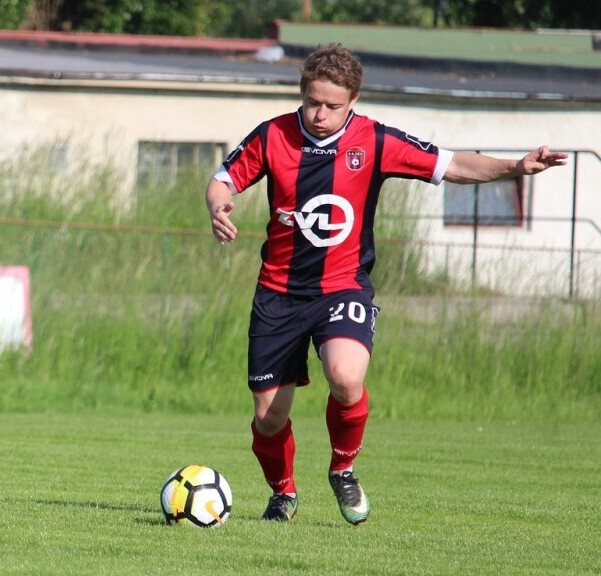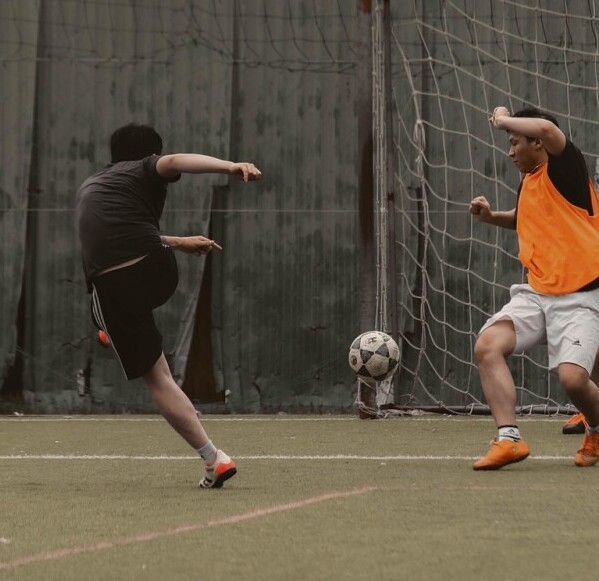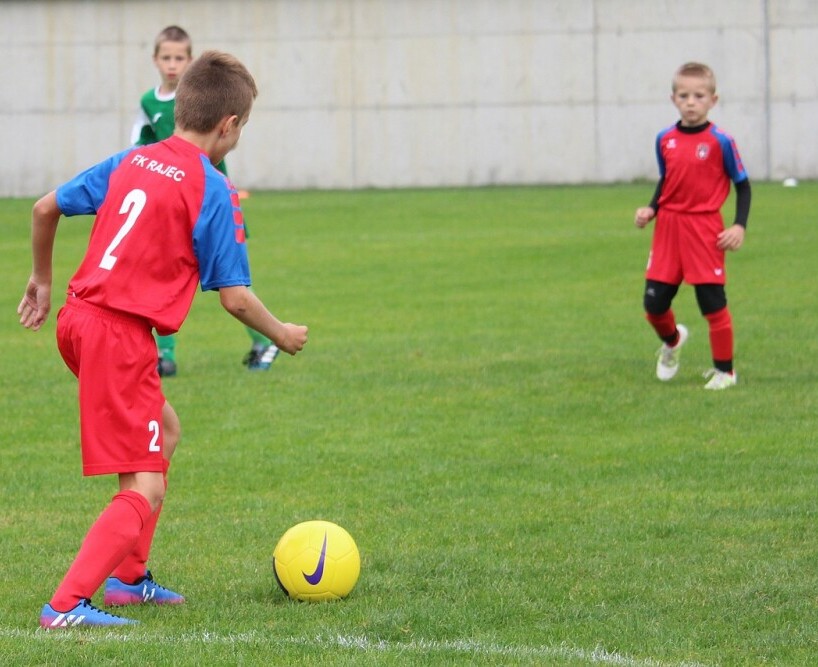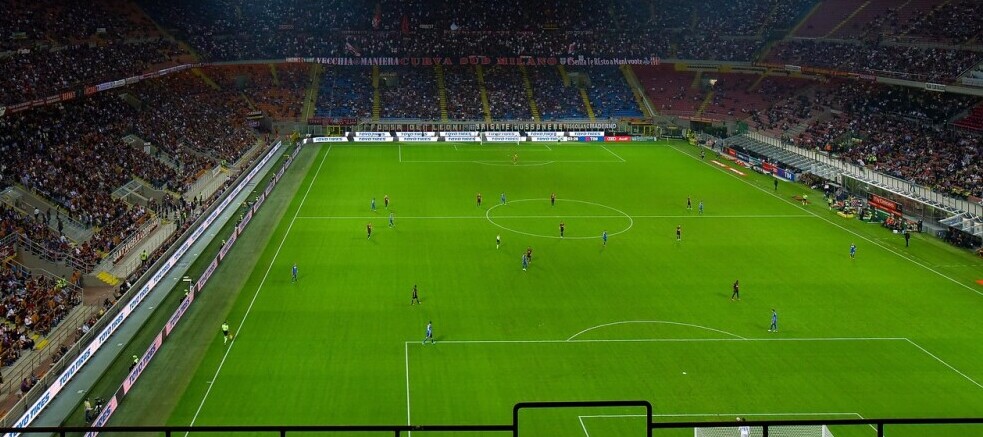
Defense, in soccer, is a game of strategy and nerves, and the defender’s role is crucial for the team’s success. It’s not just about blocking shots but also about acting as the backbone of the team, holding firm against the opponent’s advances. These players really set the tone for how solid or unstable everything else might be. Getting to grips with this position means knowing its responsibilities inside out.
Positioning is like your secret weapon. Smart defenders never chase the ball blindly. Instead, they know how to position themselves to intercept passes or block shooting lanes before the attacker even realizes what’s happening. Think of yourself as laying invisible traps on the field, all through clever positioning and anticipating your opponent’s moves.
Having eyes in the back of your head might be a little hard, but successful defenders come close. Developing the knack to read opponents is key. See their body language, watch where their feet point, and figure out what they’re planning. A good defender is like a chess player, always a step ahead, predicting moves and staying ready to counter them effectively.
Pressure is a constant companion in defense. But staying cool? That’s your real superpower. Whether it’s late in the game, and the other team’s pushing hard or the score’s too tight for comfort, keeping your head clear helps your game stay strong. It’s about maintaining that calm center amidst the chaos, knowing when to tackle, when to hold back, and how to guide your team from the back.
Building Physical and Tactical Strength

Physical and tactical strength isn’t just nice to have for soccer defenders—it’s absolutely vital. Think of yourself as whether a solid fortress can withstand any oncoming threat. Staying fit and robust gives you the resilience to outlast opponents in those nail-biting match minutes.
- Stay on Your Toes – Always be ready to move quickly by staying light on your feet.
- Watch the Ball, Not the Player – Focus on the ball to predict your opponent’s next move.
- Keep Proper Positioning – Stay between the ball and the goal to block attacks.
- Use Your Body – Shield the ball and use your arms (without fouling) to maintain balance.
- Communicate with Teammates – Talk to your team to stay organized and cover spaces.
- Be Patient, Don’t Dive In – Wait for the right moment to tackle instead of rushing in.
- Learn to Jockey – Guide attackers away from the goal by positioning yourself smartly.
- Stay Close but Not Too Close – Give yourself space to react to quick moves.
- Clear the Ball Safely – When in doubt, kick the ball out of danger.
- Build Strength and Stamina – Strong legs and endurance help you defend better for the full game
Conditioning your body properly means you can keep up with the faster attackers, and helps you maintain control over your movements. A well-kept fitness routine, filled with both strength and endurance training, gives you an edge. It’s about pairing speed with power, making sure you’re in peak shape to challenge any forward who crosses your path.
Tackling techniques are a defender’s bread and butter. A tackle doesn’t just stop an attack; it sends a message. Learning to tackle without fouling requires a balance of timing, skill, and patience. Dive in too soon, and you risk a card; too late, and the player’s past you.
Tactical drills help you outsmart opponents. Practicing situations, setting traps, and understanding different attacking plays keep you prepared. When you mold your body positioning and leverage into a fine art, you can dictate the attacker’s options, limiting what they can really do. That split-second decision-making turns routine blocks into highlight-reel plays.
Standing firm in defense isn’t only about what you do with your feet; it’s also about using your entire body effectively. Sharpening body positioning skills helps defenders win duels, shield the ball, and maintain control over their zone. It’s checking off all those skills that mean whether you’re in the heart of the defense or on the flanks, you’re in charge.
Communication and Team Coordination

In the high-energy world of soccer, defenders can’t just rely on their skills and instincts alone. Communication is what ties a team together on the field, and it’s especially true when it comes to defense. Keeping a clear line of verbal and non-verbal communication helps in staying synchronized, ensuring everyone’s on the same page and no attacker slips by unnoticed.
Linking up with the goalkeeper isn’t just about proximity; it’s a partnership built on trust and coordination. A solid understanding between defenders and the goalie can prevent goals and create confidence in the defensive line. Sharing information quickly — like an attacker’s position or signaling when to clear — makes all the difference.
Formations and tactics like the offside trap can be deadly tools when executed perfectly. Ensuring every defender knows the game plan creates a strong unit that typifies ‘defend together, win together.’ It’s about understanding movement and making sure every step you take lines up with your teammates’ actions, closing off lanes and directing play away from danger areas.
Flexibility is a defender’s best friend. Each team has its attacking style, and figuring out how to adapt on the fly keeps your defense unbreakable. Whether it’s dealing with a single star striker or a whole offensive line working in tandem, recognizing patterns and adjusting strategies adds a whole new layer to your defensive play.
Psychological Resilience and Continuous Improvement

Soccer is just as much a mental game as it is physical, especially for defenders facing high-pressure situations. Keeping your cool shows strength and reliability, even when the opponent is charging down the field with goals in mind. It’s about maintaining composure, knowing that handling stress effectively means you can perform at your best—no matter the scenario.
Learning from past games is like having your own personal playbook. Everyone makes mistakes, but great defenders see these as opportunities. Analyzing what went wrong in a match—maybe a misplaced tackle or a missed marker—becomes a crucial learning tool, helping you to evolve and sharpen your defensive instincts.
Adopting a growth mindset is all about believing in improvement and staying open to learning new techniques and strategies. It’s knowing that no matter how much experience you have, there’s always room to get better. Constantly seeking feedback and working on your game turns good defenders into great ones.
Mental training can boost your game in ways that physical prowess can’t always cover. Enhancing concentration, building confidence, and visualizing successful plays make defending feel natural and automatic. It’s that mental edge that helps keep defensive boundaries unflinching, ensuring you’re always ready for the next big play.
